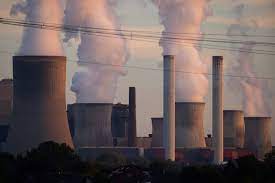EU approves Germany’s payments for early coal exit

Brussels: The European Commission on Monday said Germany should be allowed to pay the energy giant RWE some €2.6 billion ($2.8 billion) in state aid for the closure of coal power stations.
Under German law, no more electricity is to be produced from coal from 2038 onward. However, the three-way “traffic light” coalition that makes up the German government had agreed to move the date forward to 2030.
EU law generally prohibits state aid unless reasons of general economic development justify it. In a statement, the Commission decided this was the case regarding Germany’s payments.
It said that, in the case of a €2.6 billion payment to RWE, the compensation would allow the phasing out of lignite-powered energy plants in the Rhine region.
The Commission found that although the payment did constitute a form of state aid for the industry, this was necessary to achieve the goal of phasing out coal.
“The Commission concluded that the contribution to EU environmental and climate goals of the measure outweighs any potential distortion of competition brought about by the support.
On this basis, the Commission approved the German measure under EU State aid rules, adding that it was “necessary, appropriate and proportionate.”
It found that the current net value of RWE’s forgone profits was “measurably higher than the current net value of the compensation.”
Commission officials wrote that the compensation would contribute to the decarbonization of the economy in line with the EU’s objective of becoming carbon neutral by 2050.
However, its decision did not extend to a German government payment of €1.75 billion to the energy firm LEAG, which operates a plant in the eastern German region of Lausitz, between Cottbus and Dresden. That payment must still be decided upon.
The Commission was “fully conscious of the need to address the challenges that lignite exit poses for the affected regions and workers in eastern Germany,” it said.





